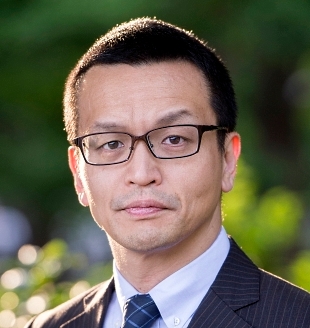
By Associate Professor Atsuhito Isozaki
The rise to power of Kim Yo-jong, Chairman Kim Jong-un's sister and the first vice director of the United Front Department of the Workers' Party of Korea (WPK), has been noteworthy.
Interest in Kim Yo-jong began in June, when she began making a series of announcements of conversations using explicit language about South Korea. Later, actions in support of these announcements spread across North Korea. Support of the words of anyone other than the Supreme Leader is unprecedented. Additionally, Kim Yo-jong warned of the destruction of the Inter-Korean Liaison Office, a symbol of peace between the North and the South, and the building was demolished in an explosion a few days later.
From these developments, some observers in neighboring countries began speculating that Kim Yo-jong was emerging as a successor to Kim Jong-un. For now, though, this speculation has little to support it.
First, Kim Yo-jong is different from the Supreme Leader, and her name and words are not recorded in bold (Gothic typeface). Honorific words such as "great" and "respected" aren't used, and specific honorific language is not used at all for her in Korean.
Second, the words of Kim Yo-jong are recorded on the second page of the Rodong Sinmun. The front page records Kim Jong-un's developments, comments lauding him, economic news, and so on. North Korean citizens are required to read this newspaper every day, and the page on which articles are printed is extremely important.
Third, Kim Yo-jong only plays a role in criticizing South Korea, and there is no record of her comments on the economy, the military, or personnel matters.
In other words, Kim Yo-jong's rise to power ought to be seen as a sharing of roles with Kim Jong-un, who has still not issued a concrete statement, and it is a far cry from her being a successor. It can also be thought of as a case in which Kim Yo-jong is the bad cop and Kim Jong-un is the good cop.
Kim Yo-jong was reappointed as an alternate Political Bureau member of the WPK on April 11. She was appointed to this position in October of 2017, but was demoted last year, and was then promoted again.
For a women in her early 30s, this is an unprecedented position, and it shows that the "Mount Paektu bloodline" holds overwhelming influence. However, as alternate members are placed below the three Presidium members, which includes Kim Jong-un, and the fifteen Political Bureau members, no matter how you rank her, she still comes in as no higher than number nineteen in the formal order. If she had been designated the successor, it would be more normal for her to have been given a higher rank.
There have been many unusual signals in North Korean media recently. For example, Kim Jong-un, who has "led" many party and national conferences, has come to be referred to as "presiding" over these conferences. If there is someone other than the Supreme Leader "leading," then that would be an obvious game-changer, but this has not been indicated. This being the case, there is only one possibility.
Risks that may damage Kim Jong-un's authority are being avoided in advance. Kim Il-sung and Kim Jong-il were built up as being all-knowing and all-powerful, but if a policy were to actually fail, there is a risk of a supreme leader losing authority. The 2019 North Korea–United States Hanoi Summit was without a doubt seen as a failure by Kim Jong-un, and this exposed him as not being a deity. This is because up until that point, North Korean citizens believed that economic sanctions would be lifted thanks to the "Great Marshal." In the future, it is better to explain that decisions were made by the Central Committee or Central Military Commission of the WPK, rather than having Kim Jong-un himself "leading" everything, giving Pyongyang scope to place big bets on US and South Korean relations. The deliberate rise of power of Kim Yo-jong is also part of this risk hedging.
"Distance-Shrinking Magic" (Chukjibeop) is found in anecdotes known by all North Koreans. This is how Kim Il Sung carried out guerrilla tactics against the Japanese while freely teleporting himself. However, an article appeared in the May edition of the Rodong Sinmun that renounced this.
Immediately after suffering a setback in Hanoi, Kim Jong-un stated, "Mystifying a leader's revolutionary activity and appearance would result in covering the truth," a comment that slammed the brakes on his own deification. Kim Jong-un's authority will soon have lasted for ten years since his inauguration, but there are no Kim Jong-un badges or portraits of Kim Jong-un posted in homes or at work places. This is Kim Jong-un's own school of realism and diversification of risk.
(Atsuhito Isozaki is Associate Professor at Keio University, Japan.)
ADVERTISEMENT
ADVERTISEMENT


































